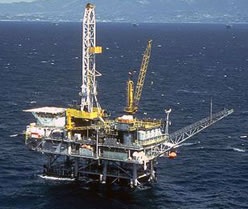 File photo
File photo
Parliament will not approve any more petroleum agreements until the Petroleum Exploration and Production (E&P) bill that is before it has been passed, Mutawakilu Adam -- a member of the Mines and Energy Committee of the legislature -- has assured.
Speaking at the Africa Oil Governance Summit in Accra, the MP for Damango in the Northern Region said passage of the law has taken this long (seven years) because the bill has had to undergo a number of reviews.
His comments were in reaction to concerns raised at the summit by civil society actors regarding the continuous delay in passage of the law while oil blocks are being given out to companies.
The MP clarified that the allocation of oil blocks does not constitute Petroleum Agreements, and that until parliament approves it no petroleum agreement takes effect.
Under the current dispensation, he explained, “Without the block there cannot be a petroleum agreement. So you can give them the block and then they begin to negotiate [with the sector ministry]. When it is negotiated and approved by cabinet, then it comes to parliament for approval”.
A better arrangement, he said, exists in the yet to be passed law, whereby the interested International Oil Company can undertake reconnaissance activity and acquire data before any negotiation can take place.
In an interview with the B&FT, the MP said he is confident the E&P bill will be passed “by first half of next year”, after the house invited and has received memoranda from various interest groups regarding what needs to be added or taken out.
“The report is ready: we wanted to lay it in October, but because of the budget we couldn’t do that. So when we come back next year, first quarter, we will lay it and go through clause by clause. So by the first half of next year we should finish with the whole bill and pass it,” he said.
Civil Society actors have over the period argued for, and succeeded in getting, provisions like mandatory disclosure of contracts and other transparency measures incorporated into the bill; and they cannot wait to see its passage.
“PNDC Law 84, which was passed in 1984, has been overtaken by developments in the industry and is therefore not fit for purpose; and seven years on we still don’t have an amendment to that law. This is a huge indictment on our seriousness as a people to better manage our petroleum resources,” Dr. Steve Manteaw of the Civil Society Platform on Oil and Gas said to the B&FT.
When passed, the E&P law will replace the Petroleum (Exploration and Production) Act, 1984 (PNDC Law 84), to make way for a more comprehensive legal regime.
It, among other things, seeks to create an enabling environment for increased private sector participation and investment in the petroleum sector, while increasing government’s stake in licences.